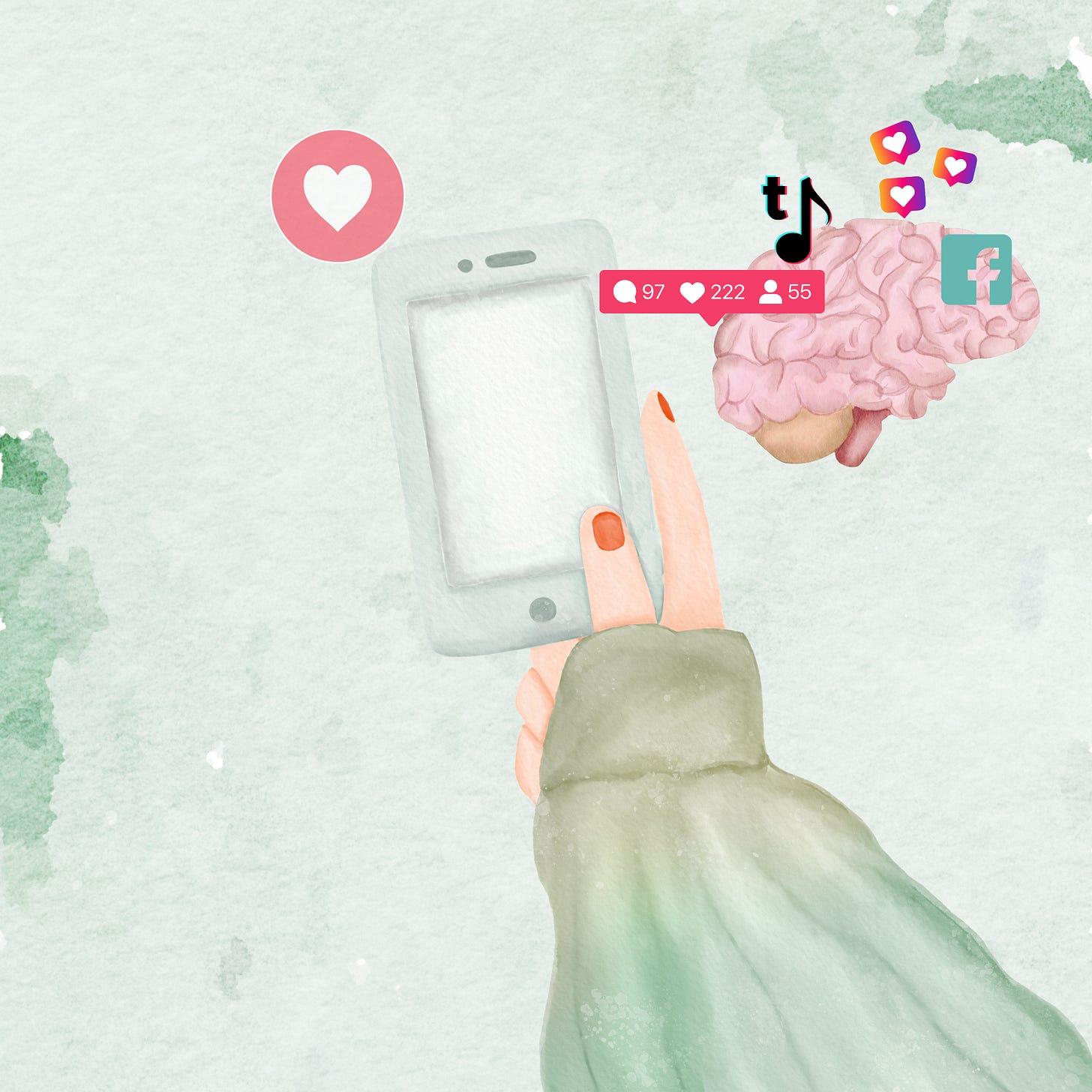As a logophile (hello, this is substack and I am writing so of course I love words!), the Oxford Dictionary word of the year is something I await with glee 🤓.
This year, the word, or phrase, is ‘Brain Rot’ , describing both the source and effect of this phrase, i.e. low brow social media content that in turn causes your brain to turn to mush. Brain rot. Like a rotting peach inside your head fattened, softened and atrophied by Kim Kardashian. It sounds awful, but also weirdly fun and irreverent.
Life feels very serious these days, and I find myself, and a lot of people I know, meeting said seriousness with more seriousness. Something I have spoken about before is the opposite being the medicine, and I find that this applies more and more everywhere I look.
Let me give you an example:
I do a lot of things to escape the reality of my very challenging present circumstances; almost all of them very, very *healthy*. I read books about spirituality and self-help that look at life through a sometimes metaphysical lens. I train my body diligently, not too hard or too little, just a very precise amount to see ‘results’ and to keep myself ticking over. I meditate, I tap, I journal multiple times a week. I set constant intentions. I pray. I write gratitude lists. I only allow myself to listen to podcasts from which I will really glean proper knowledge and learning; no more true crimes or celebrity updates for me, no sir - time is precious and knowledge is power.
But what space does any of this leave for, well, space?
Meditation is designed to create headspace, and I know this to be true as a teacher and practitioner of many years, but what I also know to be true, and what many people don’t realise, is that the state from which you meditate matters, because if you’re sitting in too many unresolved thoughts and emotions, it’s like taking a bath in dirty water (I have to thank one of my great teachers Mia Togo for this analogy).
Too much of anything isn’t good, even what we deem to be the good stuff. You can have too much headspace that gets filled with things that didn’t need to be there in the first place. You can do too much shadow work, too much journalling, too much self-reflection, which eventually becomes too much self-absorption.
Now, there are more noble ways to get out of self-centredness, such as community work, checking in on your friends and family, volunteering, donating to charity and so on and so forth, but I am going to take a little bit of time today to speak on the less noble way.
Enter Brain Rot.
Keep reading with a 7-day free trial
Subscribe to Rarely Written to keep reading this post and get 7 days of free access to the full post archives.





